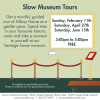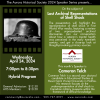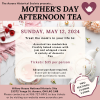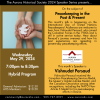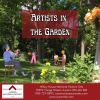McKenzie, Heather (2014) Transcript
Transcription: Heather McKenzie (HM), interviewed by Rebecca Swanson (RS)
RS: We’re at the Hollandview Trail Senior’s Centre and I’m interviewing Heather McKenzie, who has agreed to share some of the stories of her life in Aurora. Were you born in Aurora, or did you move here?
HM: No, I was born in Toronto and I was about 10 when we moved out here.
RS: What was Aurora life when you were younger?
HM: Very different than today. It was a very small town.
RS: Do you know how many people there were?
HM: About 2,500.
RS: How many schools were there?
HM: One public school, one high school… Public school served the town; the high school the surrounding area. They came in from King Township and all over.
RS: And did you go to school here?
HM: For two years.
RS: And then where did you go after?
HM: I went to [name], a rural school after.
RS: Was it a boarding school?
HM: Yes.
RS: So, did you have… What was your best memory of boarding school?
HM: Uh, I enjoyed it. It was very different; it was a little touch of England brought out here during the war eras. They did Ontario script, for instance – it was absolutely forbidden, we had to learn to write in the straight mode that the British schools taught.
RS: Can you tell me about your husband?
HM: Well, he was born down in Windsor and moved here uh, trying to think… I think he was coming in for the short time for high school, the first one in the family. His dad was the manager for the old Imperial Bank, which became the Canadian Imperial Bank of Commerce.
RS: And how did you meet?
HM: Pardon?
RS: How did you meet?
HM: How did we meet, yeah? Well, you’ve heard about everybody in town that were more or less… Gord, he was always in Aurora, and when the boys came back, there was a party every night [laughs]… It was a short time after that, but, uh… I knew who the other parts on his side were.
RS: What about your kids? Can you tell me about them?
HM: Well, three. Our eldest, slender, as strong as any of the seniors in the building… It just floors me what she’s able to do. [laughs] Our eldest boy, he’s travelled the world. He’s been to India a couple of times and he’s living out in B.C. now. Our youngest boy went through the schooling system here and bought a green expanse, it was a very successful in the business world, in [name].
RS: Um, can you tell me about McKenzie Marsh?
HM: Oh. That’s something that, uh, wasn’t exactly planned. It just kind of grew like top seed. And the Government approached us and said, “You got a piece of land there that really isn’t suitable for building” and that type of thing. But we were willing to put a dam at the north end of that lower area and create a pond, too. It’s just, Esterline took it over. Oh as kids, we used to skate there and it would flood and the little tufts of, uh, vegetation… We would have to skate around them. [laughs] But um, anyway, once the dam was established and never very deep, but deep enough that there was a very aggressive photographer came in and he was, that he was getting pictures of some of the wildlife that had established themselves there, and we didn’t want people in it and disturbing the wildlife. This was to be a reserve for the wildlife, not for people. One time, there was a Jap man; he had the most gorgeous… Telephone- landline- fence, and that sort of thing and, well, and at this point we had built a home on the west side of the pond and of the water. I dislike him. Um, he was fishing out there, and I was waving my hand around, telling him to get out of the water. Y’know, it wasn’t for people. And the last we saw of him, he has his hand of gorgeous equipment up like this and he was drenched in cold, cold spring water. We haven’t seen him since. [laughs]
RS: You told me before: you had horses when you were young?
HM: We had horses. We had work horses. I mean, it was a functioning farm that my mother had had earlier up on loan here down the street. We also boarded in France, horses never delighted to have a place, and we supplemented for the fact that I used to take the horses out and exercise them every week. This is hard work for a lot of people. And we’d be out on the weekend, to ride their horses; we loved to take them out in the week and get some exercise.
RS: How was Aurora when your kids were young different from Aurora when you were young?
HM: It was just in the process of changing, I guess. When we were young, my generation, when we did something stupid, your parents knew about it before you got home [laughs]. It was a great, controlled shall we say, but we uh, well, our children were growing up, we looked out for each other’s children. And that was an acceptable, I mean if those children fell out of line, we felt perfectly free to verbally direct them back on the acceptable path.
RS: Did you do any activities or sports?
HM: Well I curled competitively. That’s my [name] [laughs]. When they used the old-fashioned, well you know, straw brooms, not the little things that they use today. But I did a lot of inter-club, competitive curling. I loved it.
RS: Church? Did you go to church?
HM: Hm?
RS: Church? Where did you go to church?
HM: Oh, the Trinity Anglican. In those days, we were expected to turn up at church, complete with having white gloves. Having three children, they were… y’know, just nice in public school. All dressed with their nice ironed vests, and so there was uh, nothing happening at the church. I forgot that there was a time change. We were a lot… hour early.
RS: The Soap Box Derby? Can you tell me about that?
HM: Oh. You know, we didn’t have television and things like that. We made our own fun. And this was a real memorable activity and there was a chap that worked for us on the farm and at this point it was on the Callum employment. And first, he was able to control Child Street, build a ramp, and kids made their soap boxes, with a lot of help of their fathers, I might say. I know our youngest boy; his soap box was made basically from the framework of the baby carriage, and then the steering hold was a broom handle, and there were straps around that broom handle, which made steering for the creation. And there was a second boy just down the street, he’d, you know, they’d beat each other. One of them would win one competition, and the other would win the next one. They were, you know, friendly competitors. And um, there were a few others, of course, that would run it. But with the ramp at the top, off of Tyler Street and south side of where the United Church was, it gave them a fast start and they went zooming down there. I’ve got a picture of our Gary, completely cocky, [word], as the driver of his soap box. And we would, put these things in the trunk of the car and compete up in Newmarket, too.
RS: Do you have a most memorable Aurora moment from when you were young?
HM: Oh gosh, I suppose the fire down on the Main Street was one awful thing. It was on the west side of Yonge Street, just south of Wellington. And anybody that was free to turned out and lent a hand.
RS: And when was that?
HM: I can’t think of the year, or… Hurricane Hazel was certainly another one, too. We were planning a scavenger hunt right toward the night that Hurricane Hazel hit… It was the funniest feeling to have sent all these friends out to find pith helmets, and horse collars, all kinds of gracious stuff, and then to bring them back to our house. We were sitting there, 11 o’clock at night, throwing a party, nobody there but us. Oh, and we used to go all over the country [laughs]. My husband’s father was inclined to turn in our [word] and one of the things that you had to have was, he was known as H. M. McKenzie. And they had to H. M.’s signature and he had all these people knocking on the door for his signature. He wasn’t, he was… But anyway, it was a good party. The people went all around to Uxbridge to be able to get to Aurora because Yonge Street has dips and… It was impossible. We were scared. There were crazy things. There was this, don’t ask me why, we had a water tower, made it be west of where our banner is up in the ridge. This man, took this bicycle, and put it on the top of the water tower [laughs]. He was known for doing irregular things. And another group, uh, had it in for a gentleman that didn’t like kids, I guess. I think I told you this and they were, in those days, not everybody had indoor plumb/ tub. And they waited for him to walk down the path to his outhouse and then they must’ve had a scoop of some sort ready. Anyway, they scooped him inside the outhouse, and deposited him in front of the United Church. Those things were not unheard of in those days [laughs].
RS: Thank you for coming, Heather, and for sharing your stories.
HM: You’re very welcome.




